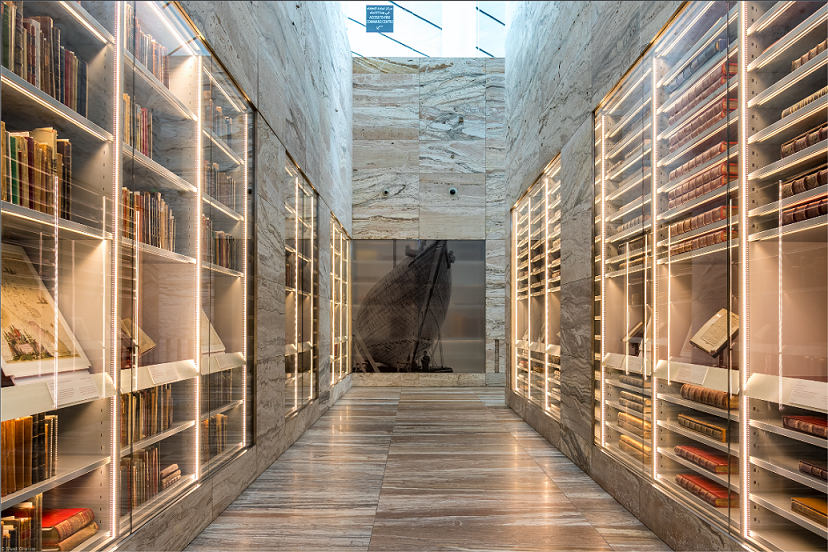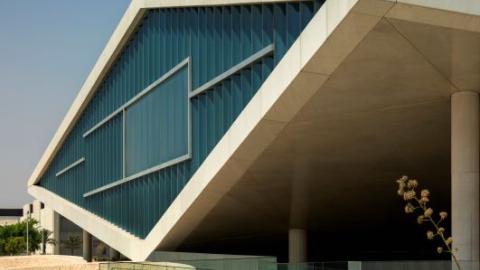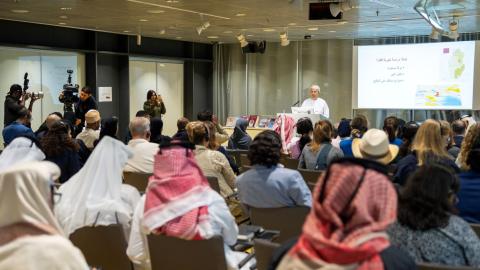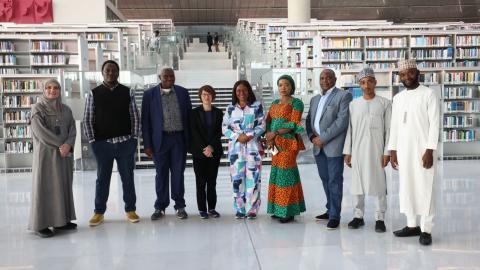
To mark the third International Day Against Illicit Trafficking of Cultural Property, Qatar National Library hosted a high-level virtual panel discussion about the efforts to counter the sale and illegal circulation of antiquities and documentary heritage in the Middle East and North Africa.
Speakers at the event included Marina Schneider, Principal Legal Officer and Treaty Depositary at UNIDROIT (an intergovernmental organization whose objective is to harmonize international private law across countries), Dr. Mounir Bouchenaki, Advisor to UNESCO and the International Centre for the Study of the Preservation and Restoration of Cultural Property (ICCROM), Dr. Zaki Aslan, Director and Regional Representative of the ICCROM-Sharjah Regional Conservation Center and Dr. Eleni Polymenopoulou, Associate Professor at HBKU’s College of Law. Dr. Polymenopoulou shed light on the importance of heritage protection and how the trafficking of cultural goods can take different forms, ranging from theft from cultural heritage institutions or private collections to the looting of archaeological sites and displaced artefacts during war.
While the illicit trade of cultural goods is international in nature and requires an international response to address its damage to human heritage, participants noted that countries of origin are the most affected.
Tan Huism, Executive Director of Qatar National Library, welcomed participants to the session, which was held on 14 November. Ms. Tan said: “It is a pleasure to open today's session to mark the third International Day Against Illicit Trafficking of Cultural Property. I believe that our ability to prevent the loss of rare and valuable heritage materials through such activities depends on continued collaboration with key regional and international organizations and professions to reach practical and realistic solutions to protect our heritage.”
“Unfortunately, the illicit trafficking of cultural goods has reached unprecedented levels in recent years, the Library has developed several initiatives and collaborations which aim to protect the region’s documentary heritage from illegal circulation and to provide educational and awareness-raising efforts on this important topic,” she added.
Ms. Schneider spoke about how countries across the world have agreed to implement the same laws, making it easier for stolen or illegally exported items to be returned to their rightful owner.
She said: “The world has stepped up its efforts in recent years to combat the illicit trade by outlining rules on the return and restitution of cultural items.”
“The 1995 UNIDROIT Convention supplements the provisions of the 1970 UNESCO Convention on the Means of Prohibiting and Preventing the Illicit Import, Export and Transfer of Ownership of Cultural Property by formulating uniform legal rules on the return and restitution of cultural objects to mitigate the illicit trafficking in cultural objects,” she said.
The event follows a recent workshop that the Library hosted about stopping the trafficking of cultural artefacts.
The interdisciplinary workshop, held in partnership with the Ministry of Culture and the US, Italian and French Embassies in Qatar, examined best practices in combating the trafficking of antiquities as well as programs and policies that protect cultural heritage and property rights.
The Library, as the IFLA PAC Regional Center for Arab countries and the Middle East, has been a pioneer in the fight against the trafficking of documentary heritage through initiatives such as the Himaya Project. Since 2020, this has strengthened and coordinated efforts with international and regional organizations to combat illicit trafficking and has held regional and international training workshops for frontline and law enforcement organizations. Himaya has also been present at various international events, encouraging libraries and archives from the MENA region to update the INTERPOL database of stolen documentary heritage items, among other work.
Several initiatives are set to launch under the Himaya Project in 2023. These include cooperation with the General Authority of Customs in Qatar for capacity building of officers in the region and the rollout of projects to combat the trafficking of antiquities in Afghanistan. In addition, Himaya has planned a regional awareness program for professionals about the risks of trafficking, and a collaboration with the Antiquities Trafficking and Heritage Anthropology Research (ATHAR) Project and Qatar Computing and Research Institute at Hamad Bin Khalifa University, to monitor trafficking activities on social media channels. The Library will also continue hosting seminars and training courses to raise awareness around the ongoing illicit trafficking issue and hopes global entities will cooperate to protect world history.







